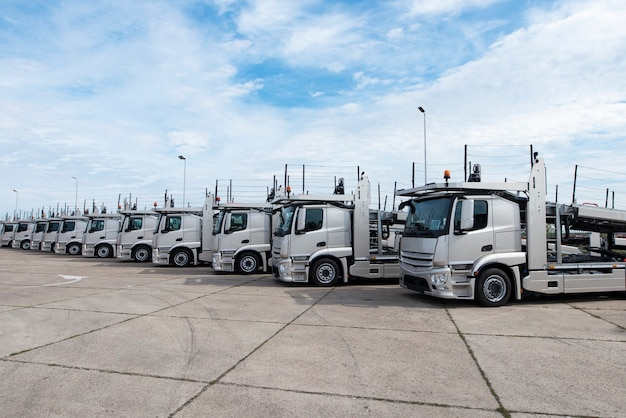Logistics is the backbone of modern business operations, playing a crucial role in ensuring the seamless flow of goods, services, and information from origin to destination. In a globalized economy, where supply chains span continents and consumer expectations are at an all-time high, efficient logistics management is more critical than ever.
What is Logistics?
Logistics refers to the planning, implementation, and control of the movement and storage of goods, services, or information within a supply chain. It encompasses a wide range of activities, including transportation, warehousing, inventory management, order fulfillment, and distribution. The primary goal of logistics is to deliver the right product to the right place at the right time, in the right condition, and at the lowest possible cost.
The Importance of Logistics
- Enhancing Customer Satisfaction
Customers today expect fast and reliable delivery of products. Effective logistics ensures timely deliveries, accurate order fulfillment, and efficient handling of returns, all of which contribute to a positive customer experience. - Reducing Operational Costs
By optimizing transportation routes, managing inventory effectively, and leveraging technology, businesses can significantly reduce their operational costs. Lower costs not only improve profitability but also allow companies to offer competitive pricing. - Facilitating Global Trade
Logistics is the cornerstone of international trade. It enables businesses to source raw materials from different parts of the world and deliver finished products to global markets. This interconnectedness drives economic growth and innovation. - Supporting Supply Chain Resilience
A well-structured logistics network can adapt to disruptions such as natural disasters, geopolitical tensions, or supply chain bottlenecks. Resilient logistics ensure business continuity and minimize the impact of unforeseen events.
Key Components of Logistics
- Transportation
Transportation is the most visible aspect of logistics, involving the movement of goods by road, rail, air, or sea. Efficient transportation systems reduce transit times and costs while ensuring the safety of goods. - Warehousing
Warehousing involves the storage of goods until they are needed. Modern warehouses often use advanced technologies such as robotics and automated storage systems to improve efficiency and accuracy. - Inventory Management
Effective inventory management ensures that businesses maintain the right balance of stock to meet demand without overstocking or understocking. This requires accurate demand forecasting and real-time inventory tracking. - Technology Integration
Logistics has been revolutionized by technology, including GPS tracking, warehouse management systems (WMS), and artificial intelligence. These tools provide real-time insights, enhance decision-making, and streamline operations.
Challenges in Logistics
Despite its importance, logistics faces several challenges, including:
- Rising Fuel Costs: Increasing fuel prices drive up transportation costs.
- Labor Shortages: The logistics industry often struggles to find skilled workers.
- Sustainability Concerns: Businesses must balance efficiency with environmental responsibility.
- Supply Chain Disruptions: Events like pandemics and geopolitical conflicts can disrupt logistics networks.
The Future of Logistics
The logistics industry is evolving rapidly, driven by technological advancements and changing consumer behaviors. Trends shaping the future include:
- Green Logistics: Emphasis on sustainable practices, such as using electric vehicles and optimizing delivery routes to reduce carbon footprints.
- Automation and AI: Increased use of robotics, AI, and machine learning to enhance efficiency and accuracy.
- Last-Mile Delivery Innovations: Solutions like drones and autonomous vehicles to address the challenges of last-mile delivery.
- Data-Driven Decision Making: Leveraging big data and analytics to optimize logistics operations.
Conclusion
Logistics is more than just moving goods from point A to point B; it is a strategic function that impacts every aspect of a business. Companies that invest in efficient logistics systems not only gain a competitive edge but also build a foundation for long-term success in an increasingly interconnected and fast-paced world.
By staying ahead of challenges and embracing innovation, businesses can ensure that their logistics operations remain a driving force for growth and customer satisfaction.
4o






